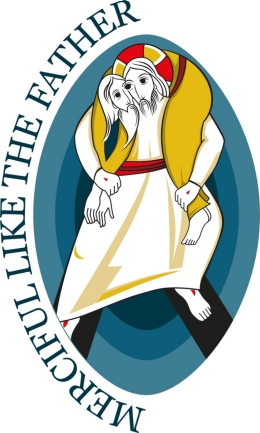Bishop David M. O’Connell, CM of the Diocese of Trenton has issued a pastoral letter for the Jubilee of Mercy, entitled, “Mercy and Truth Shall Meet.”
In the letter, Bishop O’Connell reflects upon Pope Francis’ letter on the Extraordinary Jubilee of Mercy and what living by mercy indicates in terms of “intentions, attitudes and behaviors” (VM, 9). The bishop highlights numerous passages of Sacred Scripture that speak about mercy and its revelation as a free gift of God in the Church.
Bishop O’Connell illuminates the intrinsic relationship between mercy and truth. For truth, he uses the definition of St. Thomas Aquinas: “Truth is the conformity of the mind to that which exists in reality” (ST I, 16.1). Truth is being able to see what is, and Jesus announces Himself as “the way, the truth and the life” (Jn 14:6). Walking with Christ, and thus walking with the Truth, the Catholic Church “is still responsibly for revealing truth, presenting truth, teaching truth, and witnessing truth, day in and day out, every day” (p. 6).
Quoting the Second Letter to Timothy, Bishop O’Connell addresses the temptation that all human beings have to “have their ears tickled,” in other words, to look around for teachers who will tell them what they want to hear. On the contrary, the bishop notes, the Catechism teaches that all persons “are bound to adhere to the truth once they come to know it and direct their whole lives in accordance with the demands of truth” (CCC 2467). He emphasizes, “Truth is not truth because we believe it. Truth is true whether we believe it or not [emphasis original]”(p. 7).
Despite the current narrative, mercy is nothing “new” in the Church, Bishop O’Connell says. To teach that “anything goes” is neither true nor merciful– neither, he says, is it “pastoral” to neglect doctrine. He asks, “How can something truly ‘pastoral’ or ‘merciful’ not flow from what we profess and believe?” (p. 7).
Bishop O’Connell uses the story of the woman caught in adultery as the epitome of the conjunction of mercy and truth. In this episode (Jn 8:1-11), Jesus does not abolish the law or deny the woman’s sin; rather, he refuses to condemn her and admonishes her to live differently in the future. “Go. From now on, sin no more” (Jn 8:10-11). The bishop writes, “He sent her on her way, without compromise, reminding her to follow truth.”
In conclusion, Bishop O’Connell tells the faithful of the Diocese of Trenton, “We should never abandon truth simply because it is not easy, convenient or popular” (p. 8). Mercy and truth meet in the person of Christ, “And mercy, authentic mercy, always includes and never denies truth” (p. 8).

Amen, Far to often the repentance is neglected or removed from the mercy. Forgiveness requires both when competence exists.